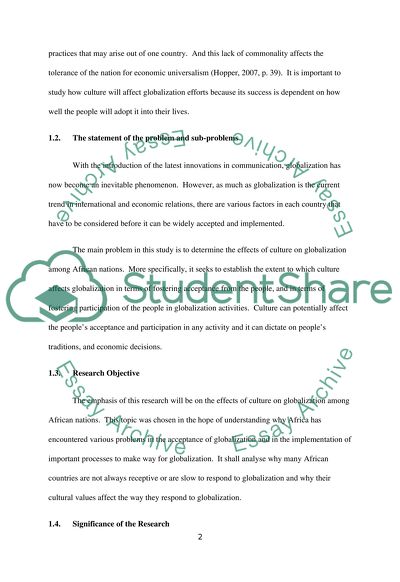Cite this document
(“The effect of culture on globalization in African countries Essay”, n.d.)
Retrieved from https://studentshare.org/culture/1556715-the-effect-of-culture-on-globalization-in-african-countries
Retrieved from https://studentshare.org/culture/1556715-the-effect-of-culture-on-globalization-in-african-countries
(The Effect of Culture on Globalization in African Countries Essay)
https://studentshare.org/culture/1556715-the-effect-of-culture-on-globalization-in-african-countries.
https://studentshare.org/culture/1556715-the-effect-of-culture-on-globalization-in-african-countries.
“The Effect of Culture on Globalization in African Countries Essay”, n.d. https://studentshare.org/culture/1556715-the-effect-of-culture-on-globalization-in-african-countries.


